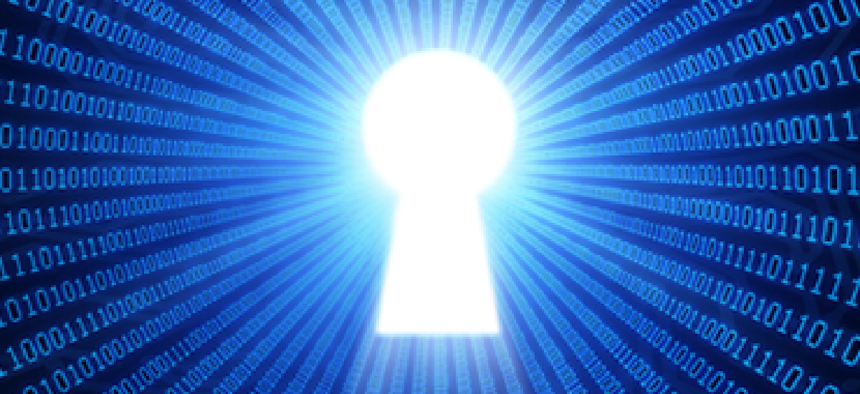What NSA's influence on NIST standards means for feds

Leaked documents show the National Security Agency introduced weaknesses into computer security standards, putting at risk NIST's reputation as a disinterested purveyor of cyber guidelines.

Top-secret documents leaked by former National Security Agency contractor Edward Snowden confirm that the NSA introduced weaknesses into computer security standards adopted by the National Institute of Standards and Technology, putting at risk NIST's reputation as a disinterested purveyor of cyber guidelines.
As reported Sept. 5 by The Guardian and New York Times, one document illustrates how the NSA influenced international standards that encryption systems rely on, working covertly in 2006 to get its own version of draft security standards issued by NIST and approved for worldwide use.
Emerging details of NSA's influence on unclassified systems and the standards that govern those systems have put NIST on the defensive, and for good reason: These kinds of revelations damage the trust NIST standards typically command.
"This is a fundamental undermining of the basic kinds of secure communications tools to give people the trust they need to participate with federal agencies, and also between federal agencies as customers and sources of each other's data," said Joseph Hall, senior staff technologist for the Center for Democracy and Technology.
Amie Stepanovich, director of the Electronic Privacy Information Center's Domestic Surveillance Project, said any standards promoted or advertised that are less secure than they are billed puts the individuals and organizations who adopt them at risk.
In short, NIST standards – at least in this instance – were weaker than they should have been because the NSA "became the sole editor" of the standards, according to Snowden-leaked documents, and no doubt a throng of coders and cryptographers are looking at exploiting those vulnerabilities right now.
"There is no way to design vulnerabilities only the good guys can use, and though we haven't seen evidence of those vulnerabilities by bad guys yet, my feeling is we will see that soon because everyone knows they exist now and there'll be a massive hunt in a prioritized manner," said Hall.
The weakened standards in question were not revealed by the newspapers but are largely rumored in the cryptography community to be within one of the four algorithms recommended in Special Publication 800-90.
That algorithm, the Deterministic Random Bit Generator, is not widely used – NIST's last update shows fewer than 70 government vendors utilize it – but that is likely little comfort to IT leaders in federal agencies who spend millions of taxpayer dollars incorporating and adhering to NIST standards.
Founded in 1901, NIST is one of the government's oldest scientific agencies and one of its most trusted, largely for standard-setting successes such as the Federal Information Security Management Act, which governs information security standards, and the Federal Risk and Authorization Management Program, which raised the bar for federal cloud computing adoption. Through the Federal Information Processing Standards (FIPS), NIST dictates how the government processes data, including tax records and Social Security information.
Since the Computer Security Act of 1987, NIST has been charged with the development and promulgation of security standards and guidelines for all unclassified federal computer systems.
The National Policy for the Security of National Security Telecommunications and Information Systems, a classified presidential directive handed down in 1991, charged the NSA with the same responsibilities for classified computer systems. Together, the act and the order are supposed to clarify the division of labor between NIST and the NSA.
"NIST is going to look immediately at who from the NSA was involved in setting those standards, and they might look at what other standards they touched," Hall said. "Any system administrator or CTO worth their salt is not going to want to be ignorant of this."
Officials from NIST were predictably tight-lipped about the revelations, offering only a statement and no further comment, though the agency does indicate it will commit significant resources to vet its standards.
"NIST works to publish the strongest cryptographic standards possible," a NIST spokesperson said in a statement. "We use a transparent, public process to rigorously vet our recommended standards. If vulnerabilities are found, we work with the cryptographic community to address them as quickly as possible."
Most feds followed the same keep-quiet narrative.
One federal employee with oversight responsibilities in a large civilian agency told FCW that revelations of the NSA-influenced weakened standards "raises questions" federal agencies will likely have to deal with for some time.
"It makes you wonder if other standards were intentionally or unintentionally weakened," the source said.
The vending community will likely do its own investigating, Hall said. Vendors create IT solutions for the government based heavily on NIST standards. If those standards aren't secure, neither is your product.
"By obeying and supporting a standard, you may be meeting to a letter the contractor requirements to be able to deal with those technologies, but you may be providing something that doesn't provide information assurance you need to provide," Hall said.



